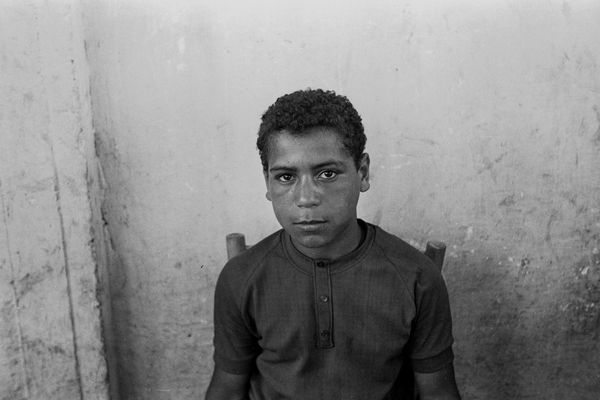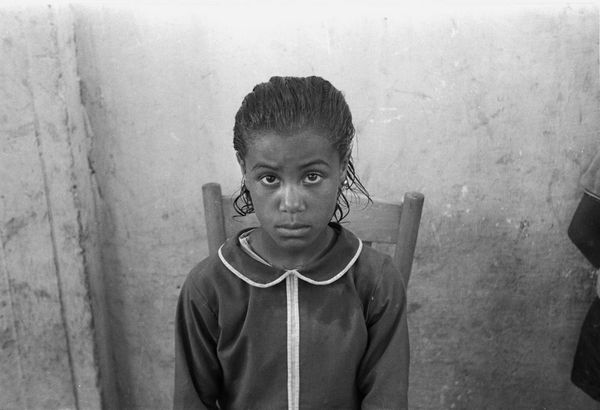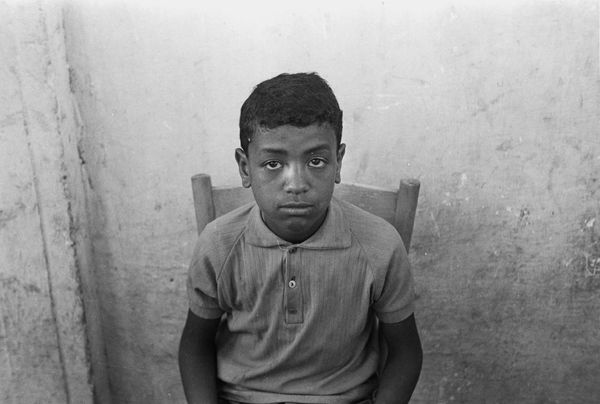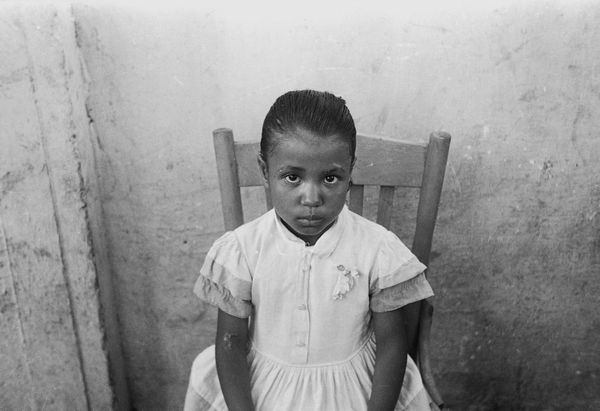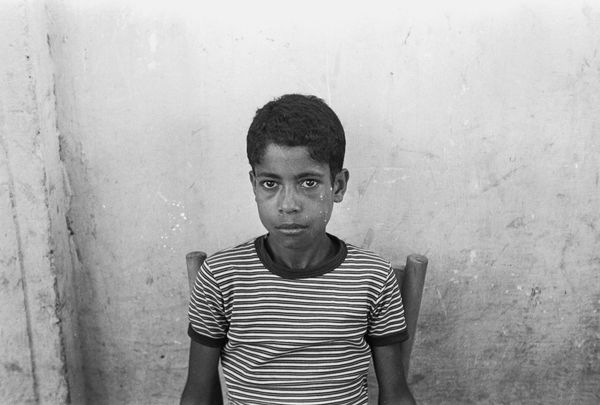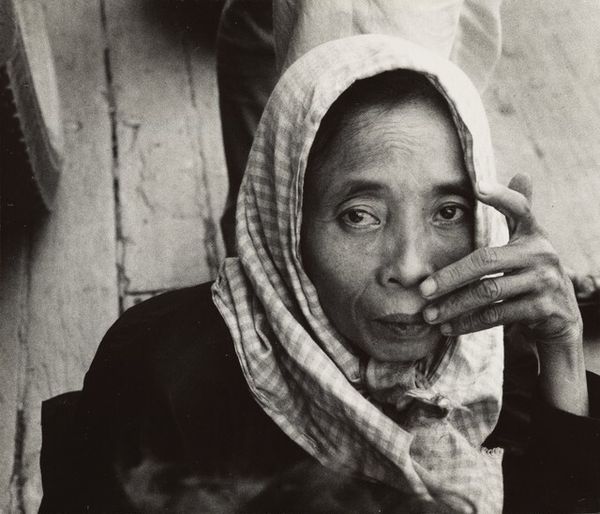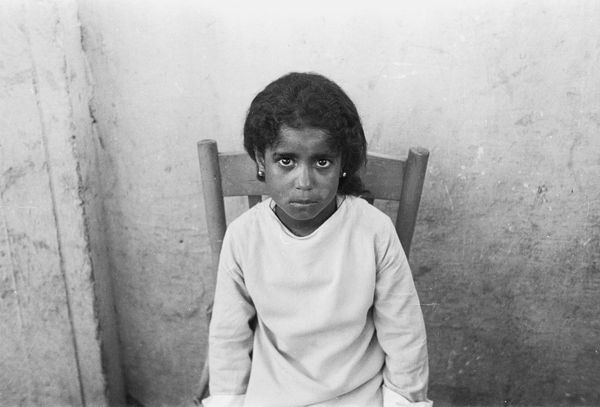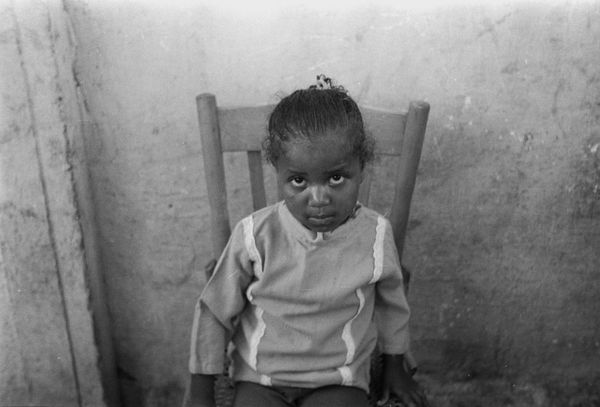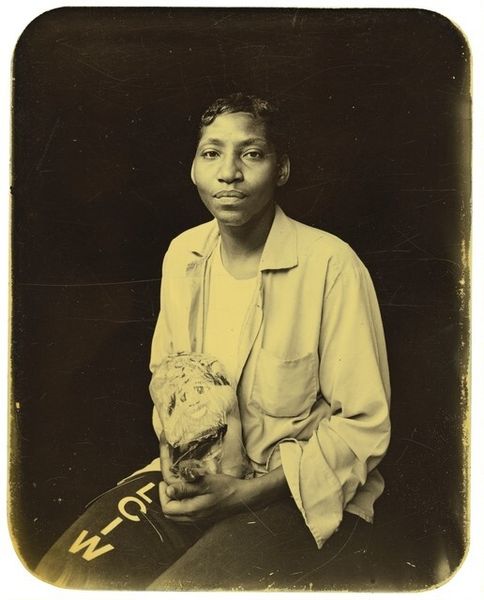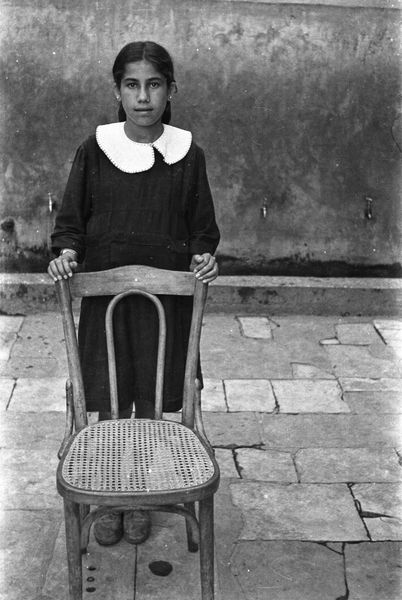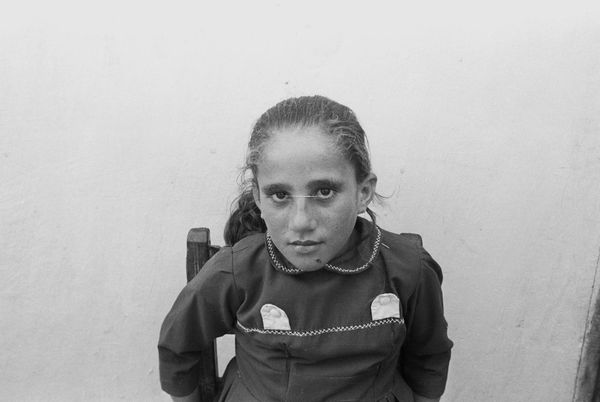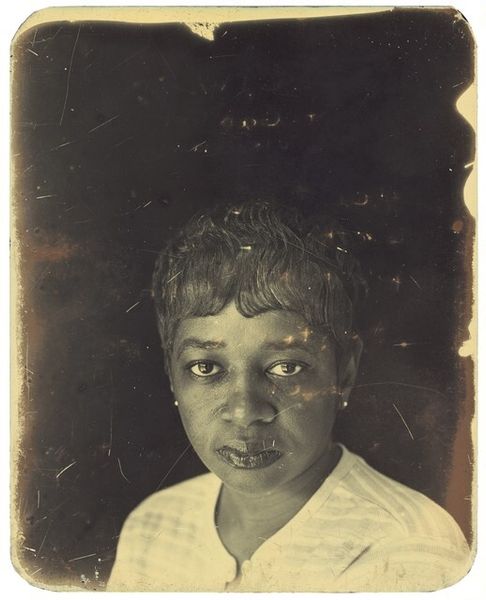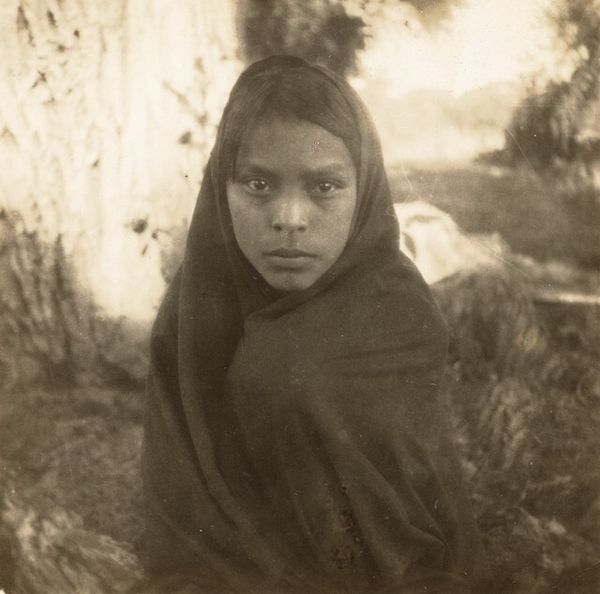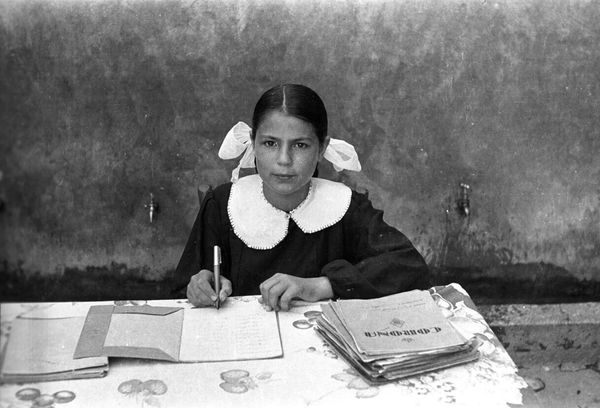
Dimensions: image: 190 x 290 mm
Copyright: © Akram Zaatari, courtesy Hashem el Madani and Arab Image Foundation, Beirut | CC-BY-NC-ND 4.0 DEED, Photo: Tate
Curator: I see a stillness, a quiet dignity radiating from this portrait. It's beautifully composed, capturing a woman's gaze directly at the viewer. Editor: Indeed. Akram Zaatari presents us with “Anonymous. UNRWA school, South Lebanon, 1960s”, a photograph he attributes to Hashem el Madani. It's a small image, but the historical weight is palpable. Curator: The texture of the wall behind her feels almost like another character, doesn't it? Weathered and worn, mirroring perhaps the woman's own story. Editor: Absolutely. The photograph is part of a larger archive exploring the lives of Palestinian refugees, underscoring issues of displacement, identity, and the politics of representation. The ‘anonymous’ is intentional. Curator: It makes me wonder about her life, her dreams. There is an undeniable sadness, but also strength. Editor: Exactly. This isn't just a portrait; it's a silent testimony, a visual document of resilience. These layered meanings are really worth the ponder. Curator: Yes, it's an image that stays with you, prompting reflection long after you've moved on. Editor: It’s a reminder of the power of photography to freeze time and hold history within its frame.
Comments
tate 9 months ago
⋮
http://www.tate.org.uk/art/artworks/zaatari-anonymous-unrwa-school-south-lebanon-1960s-hashem-el-madani-p79416
Join the conversation
Join millions of artists and users on Artera today and experience the ultimate creative platform.
tate 9 months ago
⋮
This work is one of a series of black and white silver gelatin photographs of varying sizes that are collectively titled Objects of study/The archive of studio Shehrazade/Hashem el Madani/Studio Practices. All of the photographs were taken by the Lebanese commercial photographer Hashem el Madani between 1948 and 1982 and compiled into the present group, 117 of which are in Tate’s collection, by the Lebanese artist Akram Zaatari. All of the photographs include people, either alone, in pairs or in small groups, and most were taken in Madani’s studio, although some were shot outside and in his subjects’ homes. The series features men and women and covers a wide age range from babies to elderly people. Almost all of the sitters assume poses deliberately for the camera, sometimes accompanied by props or costumes, and most gaze directly towards the lens. Many of the pictures show subjects interacting in various ways, including embracing, kissing and acting out scenes, such as a mock wrestling match. The photographs are mostly tightly cropped, with the sitter or sitters filling most of the frame, although in some cases the figures are positioned further away from the camera, for instance when shown sitting at a table or standing behind a chair. The photographs tend to have sparse backgrounds, often dominated by a blank posterior wall. They are mounted on white paper, displayed in plain white frames and signed on the back by Madani. Many of them have been organised into categories by Zaatari – such as a group featuring men dressed as Syrian resistance fighters and a collection depicting newly married couples – while the rest are presented individually. Zaatari has stated that although he prefers these groups to be displayed together, this is not a requirement (Akram Zaatari, email to Rachel Taylor, 24 April 2008, Tate Acquisition file).
